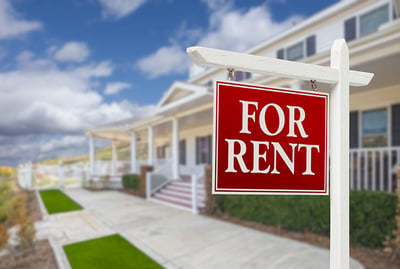The Realized Team’s Picks
When Should I Sell an Investment Property?

There is no perfect time to sell an investment property. Every situation is unique. You’ll need to consider your personal situation, economic factors, taxes, and much more.
Ways to Invest in Warehouse Properties

The nation’s continued evolution toward online shopping, hastened by the pandemic, has sparked increased demand in warehouse space as brick-and-mortar retailers seek to ramp up their e-commerce strategies by expanding their digital footprints.¹
Can a Bank be a Qualified Intermediary?

An essential part of the 1031 exchange is the inclusion of a qualified intermediary, or QI. That QI could be considered the cornerstone of a successful exchange; its job is to hold proceeds from the sale of the relinquished property, until closing on the replacement property. If you are the exchanger in the process, your QI ensures you never touch those funds.
What Does Low-Risk Credit Score Mean?

Lenders use various factors to assess the risk level of a potential borrower, and credit scores are one of those variables. There are several credit reporting companies and two options for a credit score. The most commonly referenced is the FICO, originally called Fair, Isaac, and Company since it was named after its founding partners Bill Fair and Ernest Isaac in 1956. FICO is now a broader data analytics company but is still best known for its consumer credit rating system that ranges from 300 to 850. The higher the score, the lower the risk.
When Should I Buy an Investment Property?

There’s no perfect time to buy an investment property. It’s important for investors to recognize market conditions that have the potential to create favorable opportunities. While there are seasonality factors and economic triggers, there’s a lot that impacts your investment property potential.
Can a Will Override a Tenant in Common (TIC)?

What Is a Tenancy-in-Common? TIC (Tenancy-in-Common) structures are one of several options for groups owning real estate together. A TIC arrangement can work well if the co-owners have the same goals and interests guiding their decisions because they each have an undivided share of the property, even if they own an unequal percent.
Reasons to Consider Investing in Commercial Real Estate

You’ve probably heard good things about investing in commercial real estate (CRE), like how it can potentially help diversify your portfolio and may provide consistent income. But what’s the real story? Let’s break down exactly what CRE investing means, how it’s different from other types of real estate, and its pros and cons.
Investing in Rental Property

“Residential real estate, not equity, has been the best long-run investment over the course of modern history,” according to the economic report The Rate of Return on Everything. Over the long term, investing in rental property can be a good way to make some passive income. However, a question that comes up frequently, mainly from new investors, is how to invest in rental property.
Ways to Invest in Apartments

If you are considering allocating capital to multifamily investment properties, there are many different ways you can begin investing in apartment buildings. Owning a multifamily property can be part of a long-term passive investment strategy, or it can be a daily hands-on venture depending on the ownership structure and your desired level of involvement.
Reasons to Consider Investing in Self-Storage

Commercial real estate investors have numerous options when seeking a suitable sector for their portfolio. One industry worth considering is self-storage. While the concept of self-storage arrived in the United States in the late 1800s, it didn't take off until the 1960s. Some early, post-World War II properties were designed more to take advantage of low-value land than meet a real need for storage. In the 70s and after, increasing transience in the population, shifting household size, and other demographic factors created rising demand.


